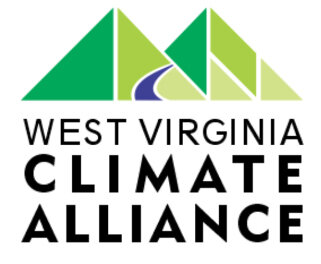OP-ED: Infrastructure bill good for West Virginia, but more needs done to address climate crisis
Here is an op-ed by WV Climate Alliance founder Perry Bryant that appeared in the Aug. 8, 2021, Charleston Gazette-Mail
By Perry Bryant | Charleston Gazette-Mail | Aug. 8, 2021: The bipartisan infrastructure bill, which recently passed the United States Senate, has several measures of particular importance to West Virginians thanks to the leadership of Sen. Joe Manchin, D-W.Va.
For example, Manchin successfully negotiated an extension of the Abandoned Mine Land program. Originally scheduled to end next month, it will now be extended for 13 years and with an additional $11.3 billion to reclaim abandoned mines. The infrastructure bill also includes $4.7 billion to plug orphaned oil and gas wells.
These two remediation efforts will create hundreds of jobs for laid off coal miners, construction workers and oil and gas workers.
The bipartisan infrastructure bill also contains an important down payment on addressing the climate crisis by investing in the electrical grid to make it cleaner and more resilient, and expanding the network of electrical vehicle charging stations.
However, a lot more needs to be done to address the climate crisis.
A thoughtful strategy
So, how do we address the climate crisis? A recent National Academy of Sciences report laid out a thoughtful, overarching strategy for addressing climate change.
First, invest in energy efficiency. Make cars, homes, refrigerators, everything more energy efficient. Second, decarbonize the electrical grid by transitioning from fossil fuels to clean energy sources such as solar, wind, hydropower and geothermal. Third, electrify everything. Electrify transportation by adopting electric vehicles. Electrify heating and cooling with heat pumps. Even get heavy industries to convert to electricity.
President Biden had originally proposed to decarbonize the electrical grid by adopting a clean energy standard requiring utility companies to generate 80% of their electricity with clean energy sources by 2030. However, this policy isn’t directly related to the federal budget, a requirement under Senate rules in order to be included in a budget reconciliation package. Senators are considering an alternative that can be included in a budget reconciliation package; meaning that it can pass with 50 votes and avoid a filibuster.
A Clean Electricity Payment Program will also require utilities to generate 80% of their electricity with clean sources of power by 2030. However, the Clean Electricity Payment Program doesn’t just require electric utilities to adopt clean energy; there will be federal payments to utility companies for using clean energy sources and penalties if they don’t make adequate progress in achieving this goal. The Clean Electricity Payment Program is directly related to the federal budget, making it eligible for inclusion in a budget reconciliation package, and no longer subject to a filibuster.
Benefits to the Mountain State
West Virginia benefits from the Clean Electricity Payment Program. First, the federal government is going to pay for a significant part of the transition to clean energy, holding down prices for utility customers. Second, the 80% clean energy requirement is a national average and not a requirement for any individual utility company.
Some utilities that already have significant amounts of clean energy sources will achieve clean energy generation above the 80% threshold. Other utilities, such as those in West Virginia, that start with fewer clean energy sources, will not be required to meet the 80% threshold. Monongahela Power, for example, relies almost exclusively on coal-fired power, and it would be very difficult for them to achieve 80% clean energy in nine years.
The world’s climate scientists tell us that we need to reduce carbon dioxide emissions by half by 2030 if we are going to avoid the worst impacts of climate change.
We are already witnessing the devastating impacts of a changing climate. There is no indication that the frequency or severity of these devastating events are leveling off. Unless we act decisively, these impacts will only continue to get worse.
Even the International Energy Agency, a conservative organization with deep ties to the oil industry, recently issued a clarion call to action saying, “it is past time for governments to act, and act decisively to accelerate the clean energy transformation.”
The budget reconciliation package that is currently being negotiated in the U.S. Senate holds the best opportunity to do just that while helping to forge a stronger and cleaner economy for West Virginia and the nation.
Perry Bryant is one of the founders of the West Virginia Climate Alliance, a broad-based coalition working for environmental justice, a true transition for mining communities, and reductions in greenhouse gas emissions.


